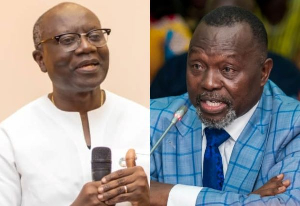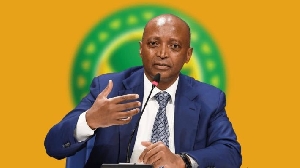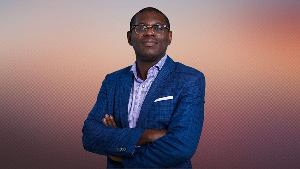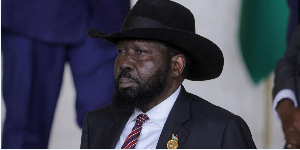Zeqblog Blog of Tuesday, 31 December 2024
Source: Okine Isaac
Why was CHASS silent on Akufo-Addo's obligation to free SHS all these time?
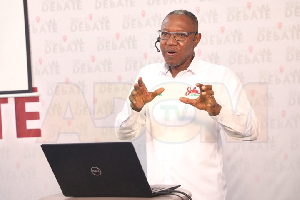
The recent letter from the Conference of Heads of Assisted Secondary Schools (CHASS) to the Minister for Education, dated December 20, 2024, and titled "Urgent Request for Release of All Outstanding Funds to Schools," has not only gone viral, but has also raised questions that both CHASS and President Akufo-Addo must address.
CHASS, rather belatedly, documents and laments the financial issues that our secondary schools face under the free Senior High School (free SHS) Programme. CHASS advises against restarting secondary schools on January 3rd, 2025, unless all outstanding payments are paid.
Many people are wondering why CHASS has been so quiet regarding Akufo-Addo's reliance on his so-called flagship policy all these years. Similarly, many Ghanaians are questioning why Akufo-Addo has failed to meet his duties under his so-called hallmark project despite every financial proposals to support the free SHS policy since 2017 have been approved by parliament.
Until recently, the free SHS policy was regarded as the most significant initiative of Akufo-Addo's two-term administration. The ruling New Patriotic Party (NPP) made it a central theme in its 2020 campaign message, as well as in the recent 2024 elections.
However, post-election changes in the education sector have revealed substantial difficulties to the strategy. Most of the issues may be summed up in a single word: DEBTS on all fronts.
In a letter dated December 20, 2024, the CHASS group listed many obligations owing by the government to its institutions. It added that the arrears were due to recurring payments owed to schools, perishable commodities, transportation funds, and energy bills.
According to CHASS figures, the debts it is currently requesting from the government began to accrue some four years ago.
According to data accessible in 2021, recurrent arrears for SHS 1 and SHS 2 students were not paid in the second semester. Second-year students in transition schools were not adequately funded as debts accumulated.
The situation exacerbated the next year, when recurrent arrears expected to cover SHS 1, 2, and 3 students were not paid for the whole first year of the following school year.
In the second semester of 2022, the government reimbursed 50% of the transition schools' recurrent arrears for third-year students. The remaining arrears for SHS 1 students enrolled that semester were not paid.
In no way did 2023 vary from previous years. The government continued to push its obligations down the road, neglecting to settle them for the SHS 1 pupils who attended school in the first semester.
As the year advanced into the second semester, recurring arrears remained because education sector management were unable to pay any of these loans to the transition schools. This impacted all second-cycle students at those universities.
In no way did 2023 vary from previous years. The government continued to push its obligations down the road, neglecting to settle them for the SHS 1 pupils who attended school in the first semester.
As the year advanced into the second semester, recurring arrears remained because education sector management were unable to pay any of these loans to the transition schools. This impacted all second-cycle students at those universities.
All of these debts indicate a pattern of funding difficulties extending back to the first year of President Akufo-Addo's second term. Despite these issues, President Akufo-Addo labeled individuals who legitimately expressed concerns about the poorly managed free SHS scheme as naysayers, even accusing them of conspiring to undermine the policy.
In the face of all of this, CHASS remained silent, only warning in the final hours of the outgoing government that schools cannot be reopened until the arrears are paid. It would have been in the national interest for CHASS to have voiced these issues when Akufo-Addo and his appointees spread incorrect information about the strategy for years.
The total sum provided to and approved by parliament for free SHS over eight years, from 2017 to 2024, is Ghc15.5 billion. The logical issue is, why is the Akufo-Addo/Bawumia government obligated to free SHS, as stated in the CHASS letter?
Given the amount of monies granted by parliament for the policy's implementation throughout the years, the only plausible conclusion is that Akufo-Addo and his appointees may have misappropriated or diverted funds to activities unrelated to free SHS. As a result, the incoming John Dramani Mahama government is justified in calling for an investigation of free SHS expenditures between 2017 and 2024.
Without a doubt, free SHS is a commendable concept, but the incompetent and corrupt Akufo-Addo administration handled it terribly, as evidenced by CHASS's letter of regret. It is hardly surprising, then, that Ghanaians overwhelmingly voted for President-elect John Dramani Mahama to improve and sustain free SHS.
Opinions



